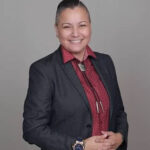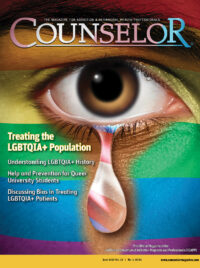Share
Many families throughout the USA have been affected by Anti-LGBTQIA2+ bills. In this short article, you will get familiar with legislation that is being signed by the Governor of California, but not nationwide. We must protect our LGBTQIA2+ youth through education, prevention, and providing safe places for them where they can open up and talk about their gender and sexuality.
Here are some Assembly bills to get familiar with so that you are able to mirror them and propose them for your state.
- Leave for Chosen Families–AB 1041 (Wicks)–Signed by Governor Newsom. AB 1041 will make access to job protected family caregiving and sick leave more equitable for all of California’s working families, including LGBTQ+ workers with chosen families.
- Civil Liability for Abortions–AB 1666 (Bauer-Kahan)–Signed by Governor Newsom. AB 1666 protects Californians from civil liability on the basis of other states’ laws that impede abortion rights, which are contrary to the public policy of California. The bill took effect immediately upon signature. Reproductive Health and Privacy–AB 2091 (Bonta)–Signed by Governor Newsom.AB 2091 will protect the private medical information of people in California when exercising their right to obtain an abortion.
- Training for Pharmacists–AB 2194 (Ward)–Signed by Governor Newsom. AB 2194 will strengthen implementation of SB 159 (Wiener 2019) and reduce barriers to care for LGBTQ+ people by equipping pharmacists and pharmacy technicians to provide LGBTQ+ culturally competent services and care.
- Minimizing Deadnaming in CCC Systems–AB 2315 (Arambula)–Signed by Governor Newsom. AB 2315 will require Community College Districts to implement processes by which students, staff, and faculty can declare and use an affirmed name and/or gender on academic records.
- Youth Bill of Rights–AB 2417 (Ting)–Signed by Governor Newsom. AB 2417 will ensure that incarcerated youth–a disproportionate number of whom are LGBTQ+ –have easier access to information regarding their existing rights under state and federal law.
- Death Certificates–AB 2436 (Bauer-Kahan)–Signed by Governor Newsom. AB 2436 will make parental fields on death certificates gender inclusive, which will help LGBTQ+ parents navigate estate proceedings and other matters following the death of a child.
- Protecting Transgender Youth and Their Families–SB 107 (Wiener)*–Signed by Governor Newsom. SB 107 is a response to anti-trans laws of other states and will help to ensure that transgender youth and their families who come to California in pursuit of gender affirming care and an authentic life are protected in that endeavor.
- Safer Streets for All Act–SB 357 (Wiener)–Signed by Governor Newsom. SB 357 repeals the law that criminalized loitering with the intent to engage in sex work; a law that has contributed to discrimination and profiling, particularly against Black women and people who are transgender.
- TGI Inclusive Care Act–SB 923 (Wiener)–Signed by Governor Newsom.SB 923 will help to create a healthcare system that meets the needs of TGI people and will make it easier for TGI people to find life-saving gender-affirming services.
- All Gender Restrooms–SB 1194 (Allen)–Signed by Governor Newsom. SB 1194 authorizes localities to require that new public restrooms be designed for all genders, as specified.
- LGBTQ+ Education Budget Proposal (Low & LGBTQ Caucus)–Approved by the Legislature & Governor in AB 178 (Ting).
This appropriation will fund the creation of one position within the California Department of Education that will be dedicated full-time to the advancement of safe and supportive school climates for LGBTQ+ students.
Increasing Family Support and how to help now:
- Include LGBT young people and families when describing populations served in agency literature, brochures, outreach activities, and websites to ensure that LGBT youth and families know that your agency welcomes them and will provide services for them.
- Include information on the importance of family support and on the relationship between family acceptance and rejection and health risks and well-being for LGBT youth in all parent and caregiver education resources, activities, and programs.
- Ask adolescent patients and clients about their sexual orientation and gender identity. Ask about family reactions to their sexual orientation, gender identity, and gender expression, including specific behaviors that parents, families, and caregivers use to respond to their child’s sexual orientation and gender expression.
- Provide education, support, and counseling to parents, families, foster parents, and caregivers who are engaging in rejecting behaviors. This includes using educational materials to help them understand the impact of their behaviors on their LGBT child (see Resources below), and providing coaching, counseling, peer support, and family therapy. Include families and caregivers of LGBT children and youth on advisory groups for child, youth, and family service programs and agencies.
- Do outreach to invite and include families and caregivers of LGBT children and youth and their LGBT children in recreational, social, and community activities and events offered by practitioners, programs, and agencies that serve children, youth, and families.
- Include LGBT books, brochures, and posters in agency waiting rooms, offices, and care facilities. Many LGBT youth and those who may be questioning their identity look for “safe zone” or rainbow stickers to indicate that a provider will be open and respectful in providing support and addressing needs related to their LGBT identity. (A Practitioner’s Resource Guide for Helping Families to Support Their LGBT Children, n.d.)
For Families:
- Gay, Lesbian and Bisexual Facts for Teens and Their Parents (American Academy of Pediatrics): www.healthychildren.org/English/ages-stages/teen/dating-sex/Pages/Gay-Lesbianand-Bisexual-Teens-Facts-for-Teensand-Their-Parents.aspx
- Gender Identity Development (American Academy of Pediatrics): www.healthychildren.org/English/ages-stages/gradeschool/Pages/Gender-Identity-and-Gender-Confusion-In-Children.aspx
- Family Acceptance Project–Family Videos: www.familyproject.sfsu.edu/family-videos
- Parenting Resources (Human Rights Campaign): https://www.hrc.org/resources/parenting Connection
- PFLAG: www.pflag.org
- Trans Youth Family Allies: www.imatyfa.org
For Providers:
- Best Practice Guidelines for Serving LGBT Youth in Out-of-Home Care (Family Acceptance Project): https://familyproject.sfsu.edu/publications
- Resources for Supporting LGBTQ Youth (Human Rights Campaign): https://www.hrc.org/resources/lgbtq-youth
- Trainings for Youth-Serving Professionals (The Trevor Project): www.thetrevorproject.org/pages/trainings-for-youth-serving-professionals
- National Child Traumatic Stress Network LGBTQ Resources: https://www.nctsn.org/search?query=LGBTQ
- LGBT Youth Homelessness Report (True Colors Fund): www.truecolorsfund.org/portfolio/lgbt-youth-homelessness-report
- The 40 to None Network: www.truecolorsfund.org/our-work/training-education/network
- GLSEN (previously an acronym for Gay, Lesbian and Straight Education Network): www.glsen.org
About Me
Kristina Padilla, MA, LAADC, ICAADC, CGS, is a leader with the California Consortium of Addiction Programs and Professionals (CCAPP), where she serves as the vice president of strategic development and vice president of education, overseeing CCAPP’s education department. Mx. Padilla has a BS in criminal justice administration and a MA in counseling psychology with an emphasis on marriage and family therapy. She is on the board of directors of the National Association of Lesbian, Gay, Bisexual, Transgender Addiction Professionals and their Allies (NALGAP), where she is the vice president and the California representative. Mx. Padilla identifies as a trans, gender-fluid, two-spirit, nonbinary, biologically born woman. Her pronouns are she/her and they/them, and she goes by the suffix of Mx. Padilla.














 Counselor Magazine is the official publication of the California Association of Addiction Programs and Professionals (CCAPP). Counselor offers online continuing education, article archives, subscription deals, and article submission guidelines. It has been serving the addiction field for more than thirty years.
Counselor Magazine is the official publication of the California Association of Addiction Programs and Professionals (CCAPP). Counselor offers online continuing education, article archives, subscription deals, and article submission guidelines. It has been serving the addiction field for more than thirty years.